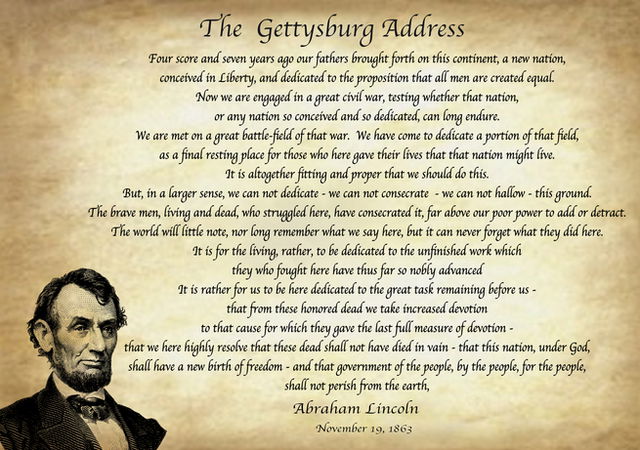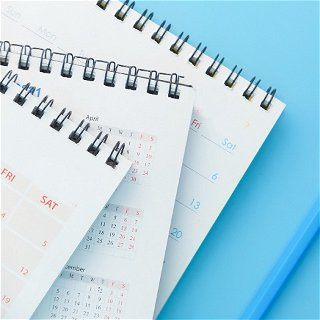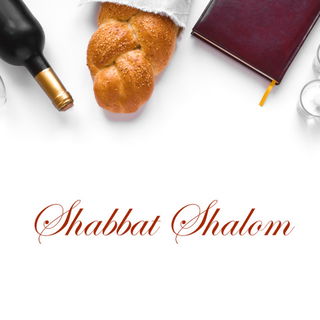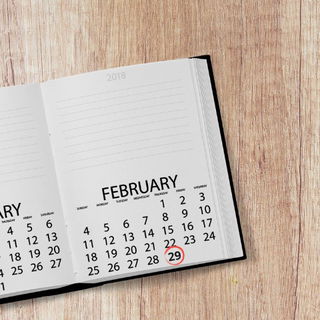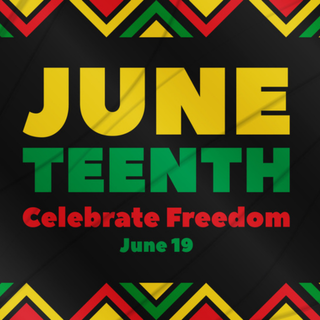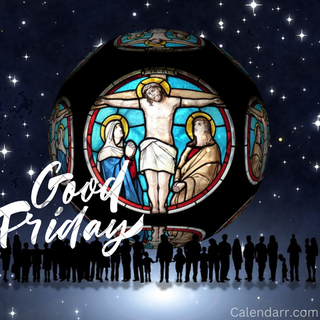During the battle of Gettysburg over 45,000 people lost their lives. On November 19, 1863, Abraham Lincoln gave an address at the Gettysburg National Cemetery where those bodies lay.
The address was received positively by the crowds, who rose to give a standing ovation as Abraham Lincoln finished. Although political opponents criticized the speech, widespread opinion was that the speech succeeded in capturing public opinion on both the civil war and America's position politically in the world.
Edward Everett wrote to Abraham Lincoln after the event saying "I should be glad, if I could flatter myself that I came as near to the central idea of the occasion, in two hours, as you did in two minutes."
In modern times The Gettysburg Address is still admired; it is considered Abraham Lincoln's greatest speech and was featured in TIME magazine's Top Ten Greatest Speeches. The structure of the address is often also used as an example of how to make a compelling and powerful argument using as few words as possible.
Full Text
The Gettysburg Address
Four score and seven years ago our fathers brought forth on this continent, a new nation, conceived in Liberty, and dedicated to the proposition that all men are created equal. Now we are engaged in a great civil war, testing whether that nation, or any nation so conceived and so dedicated, can long endure. We are met on a great battle-field of that war. We have come to dedicate a portion of that field, as a final resting place for those who here gave their lives that that nation might live. It is altogether fitting and proper that we should do this. But, in a larger sense, we can not dedicate - we can not consecrate - we can not hallow - this ground. The brave men, living and dead, who struggled here, have consecrated it, far above our poor power to add or detract. The world will little note, nor long remember what we say here, but it can never forget what they did here. It is for the living, rather, to be dedicated to the unfinished work which they who fought here have thus far so nobly advanced. It is rather for us to be here dedicated to the great task remaining before us - that from these honored dead we take increased devotion to that cause for which they gave the last full measure of devotion - that we here highly resolve that these dead shall not have died in vain - that this nation, under God, shall have a new birth of freedom - and that government of the people, by the people, for the people, shall not perish from the earth,
4 Curious Facts About the Gettysburg Speech
Short, with a punch
The address was remarkably brief, lasting only 2 minutes. Leading up to the ceremony, Lincoln had not been publicized as being the primary speaker.
It came after a 2-hour-long speech
The speaker before him, a renowned academic and orator called Edward Everett, was the principal speaker, and he spoke for two hours before Lincoln stepped up to the podium. Not many people remember him.
There are 5 different versions
There are five handwritten copies of the speech that have been found, each with small differences. Before giving the speech, Abraham Lincoln wrote two versions, settling on the second version which he gave at the event. Three of the versions were written well after November 19.
The Library of Congress has two of the copies. Lincoln gave them, one each, to John Nicolay and John Hay, his private secretaries.
After the ceremony, Lincoln sent three nearly identical versions to different individuals, including one copy to Edward Everett, principal speaker at the event. This copy is now at the Illinois State Historical Library in Springfield.
Historian George Bancroft's copy is now at Cornell University in New York.
The final copy is now in the Lincoln Room of the White House. It was made for Colonel Alexander Bliss, George Bancroft's stepson.
Each word on that speech is worth $73.529
The copy owned by the Lincoln Library and Museum has been appraised at $20 million. Not too bad for only 272 words!
